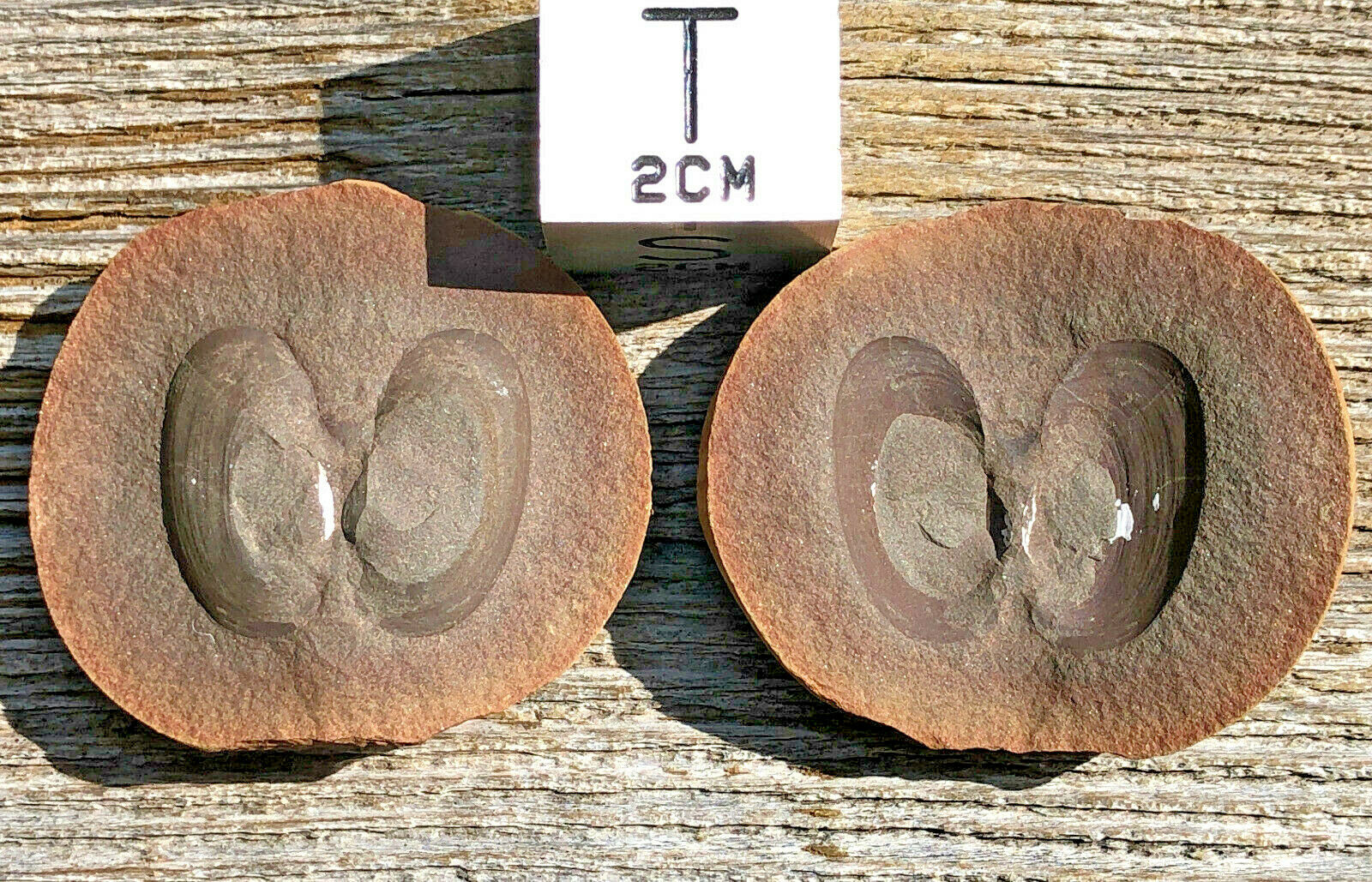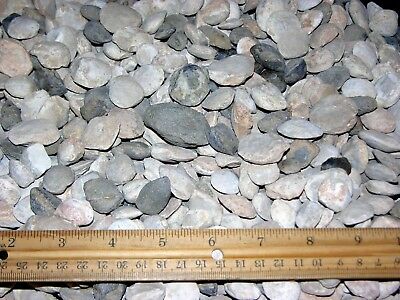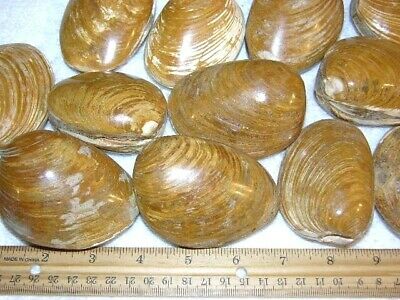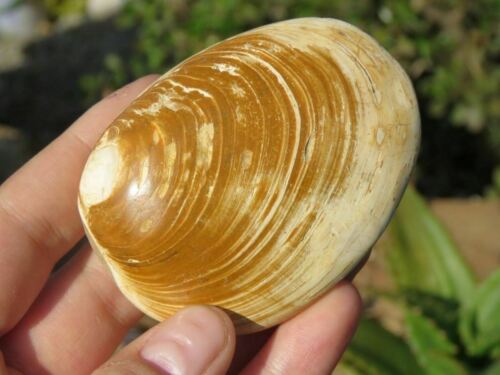-40%
Bivalve fossil clams Madagascar 1-1/2 inch 1 pound 40 plus fossils
$ 6.33
- Description
- Size Guide
Description
1 pound lots of Bivalve fossil clams from Madagascar scooped from fossils as pictured.Each winner will receive 1 pound of fossils scooped from fossils as pictured with size running approximately 1/2 to 1 1/2 inches long and wide by 1/4 to 3/4 inch deep and lots generally containing 40 to 80 fossils.As with all fossils some pieces may have matrix rock attached and other pieces may be only a portion of a complete fossil but most are nice specimens needing a wash only and when polished these are quite stunning fossils.Bivalves are marine and freshwater mollusks belonging to the class Bivalvia. Other names for the class include Acephala, Bivalva, Pelecypoda, and Lamellibranchia. The class contains 30,000 species, including scallops, clams, oysters and mussels.Bivalves have a shell consisting of two rounded plates called valves joined at one edge by a flexible ligament called the hinge. The shell is typically bilaterally symmetrical, with the hinge lying in the sagittal plane.Bivalves are superficially similar to Brachiopod's, but the construction of the shell is completely different in the two groups. In Brachiopod's, the two valves are on the dorsal and ventral surfaces of the body, while in bivalves, they are on the left and right sides.Bivalves appeared late in the Cambrian explosion and came to dominate over Brachiopod's during the Paleozoic. By the Permian-Triassic extinction event bivalves were undergoing a huge radiation while Brachiopod's were devastated, losing 95% of their diversity.











